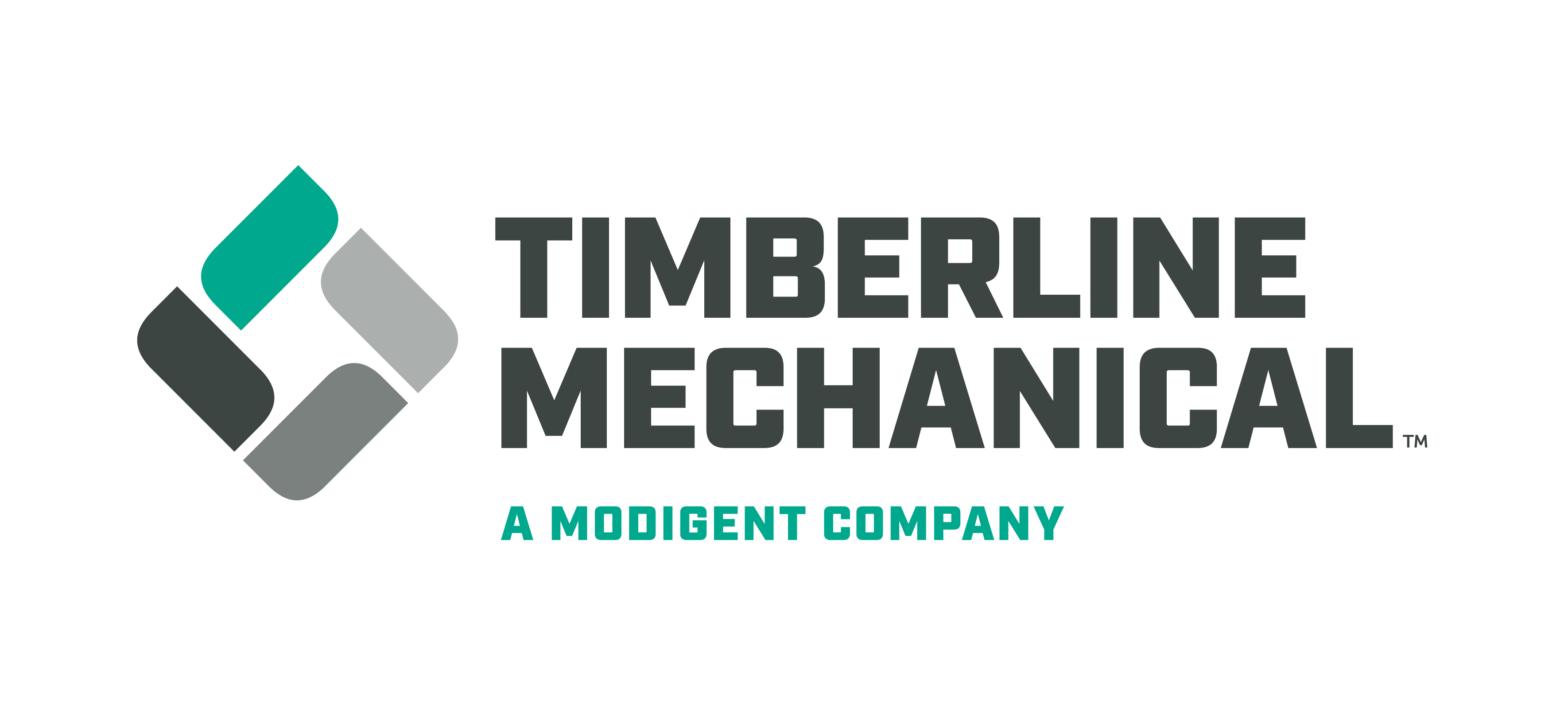August 22, 2024 by Timberline
Commercial and industrial buildings are busy environments where the focus is on productivity. Business owners work continually to find ways to help employees increase their output, which benefits both the company and its workers.
One factor that’s easy to overlook is the benefit of a well-maintained, properly functioning HVAC system. That’s true for a couple of reasons. For one thing, we’re fortunate to live in an age where indoor spaces are kept comfortable more or less automatically. As a result, we learn to pay little attention to the temperature, humidity, etc., and may not initially notice changes if the HVAC system starts to falter.
Also, if indoor conditions start to deteriorate, it’s common for people to write that off as “no big deal” and choose to stay engaged in their work and “just get through it.” Unfortunately, there’s more at stake than comfort. Working in conditions that are excessively warm or cold, humid, etc., can negatively impact productivity. Those conditions also affect clients or customers and other visitors.

None of those scenarios is hard to imagine. Employees who are sweating or shivering at their workstations are likely to leave them more frequently in search of ways to cool down or warm up. Similarly, customers in an uncomfortable environment may be more inclined to cut their visits short and shop elsewhere. Clients are also likely to end visits faster than you or they had expected, which isn’t good for your business.
So, building and business owners find that a healthy HVAC system is vital to occupant comfort and overall business success. Let’s go a little deeper into how an HVAC system’s ability (or inability) to keep temperature, humidity, and air quality within prescribed parameters affects everyone in commercial and industrial buildings.
Temperature Control: The Foundation of Comfort
Our temperature preferences are influenced by cultural conditioning, but they also have an underlying biological basis. The human body functions most effectively within a specific temperature range.
In commercial and industrial settings, maintaining an optimal temperature is crucial for both comfort and productivity. Asking people to endure temperatures beyond either end of the normal range can lead to problems.
- “It’s too hot.” When temperatures rise, employees can experience discomfort, fatigue, and difficulty concentrating. This can lead to decreased productivity, increased errors, and even heat-related illnesses. In industrial settings, high temperatures can pose safety risks and impact the quality of manufactured goods.
- “It’s too cold.” Excessively cold environments can lead to discomfort and decreased dexterity. Extended periods in a setting that’s too cold can also lead to shivering as the body tries to stay warm, adversely affecting concentration and focus. Ultimately, overly cold temperatures can impact employee performance and create an unwelcoming atmosphere for visitors.
A properly functioning HVAC system maintains a consistent and comfortable temperature throughout the building, regardless of external weather conditions. This ensures everyone within the space can focus on their tasks without being distracted by temperature-related discomfort.
Humidity Management: Vital to Occupant Comfort
The effects of humidity—the amount of moisture in the air—aren’t always considered. However, they play a role that is every bit as important as temperature. Humidity above or below the norm for an area can negatively impact comfort and productivity.
- High humidity. When humidity levels are elevated, the air feels heavy and sticky. This can make breathing difficult and contribute to a feeling of sluggishness. High humidity can also promote the growth of mold and mildew, which can trigger allergies and respiratory problems.
- Low humidity. Often less noticeable than high humidity, a low air moisture level can also cause problems, including dry skin, itchy eyes, and respiratory irritation. In addition, it can increase the risk of static electricity, which can be annoying and even a safety hazard in certain industrial settings.
A properly functioning HVAC system controls humidity levels, ensuring the air does not get too moist or dry and promoting a more comfortable and healthy environment for everyone who works in or visits the building.
Air Quality: Helping Occupants Breathe Easy
The quality of the air we breathe directly impacts our comfort and health. That’s important to people who visit commercial and industrial buildings but even more so to those who spend several hours daily working there.
Multiple factors can affect the air quality in these buildings, including accumulations of dust and other allergens, pollutants in the surrounding outside air, and chemicals and other substances used in manufacturing processes, cleaning, etc. How clean the air is can have a significant impact on building occupants and visitors:
- Poor air quality. Poor air quality can trigger an array of health problems, including allergies, asthma, and respiratory infections. It can also lead to headaches, fatigue, and difficulty concentrating—a group of symptoms sometimes called “sick building syndrome”—impacting employee productivity and overall satisfaction.
- Good air quality. A well-maintained HVAC system filters and purifies the air, removing pollutants and allergens. It also maintains proper ventilation, bringing in fresh air and removing stale, stagnant air.
Beyond Productivity: Additional Benefits of Effective Climate Control
Numerous studies have shown that employees who are comfortable and free from distractions can focus on their work and perform at their best. However, effective climate control provides other benefits, including:
- Increased creativity. A pleasant and healthy environment can stimulate creativity and innovation, leading to new ideas and solutions.
- Reduced absenteeism. People are more likely to report to work when 1) they aren’t battling an illness caused, in part, by their work environment and 2) they can look forward to being comfortable during their shift.
- Improved morale. Employees who feel valued and cared for are more likely to be engaged and motivated. This can lead to increased productivity and a positive work environment.
Proper HVAC System Maintenance Is Essential
Keeping a commercial or industrial building HVAC system at peak performance (and thereby supporting occupant comfort and productivity) requires regular maintenance, including cleaning, inspections, and repairs. The benefits of a proactive approach to HVAC system care include:
- Avoiding breakdowns. A technician performing scheduled service can catch and address potential problems before they cause major disruptions. This can help a business avoid inconvenient system downtime and costly repairs.
- Maximizing energy efficiency. A well-maintained HVAC system operates more efficiently, reducing energy consumption and lowering utility costs.
- Increasing system lifespan. Regular maintenance can extend the lifespan of HVAC equipment, delaying the need for a new system.
Make Your Commercial/Industrial Building a Great Place To Work or Visit
A consistently comfortable indoor environment isn’t a luxury—it’s essential to keeping employees happy, healthy, and productive. Proper climate control also makes clients, business partners, and others look forward to visiting.
Contact Timberline Mechanical today to learn about our commercial and industrial HVAC services, including preventative maintenance, service, repairs, and special projects.
